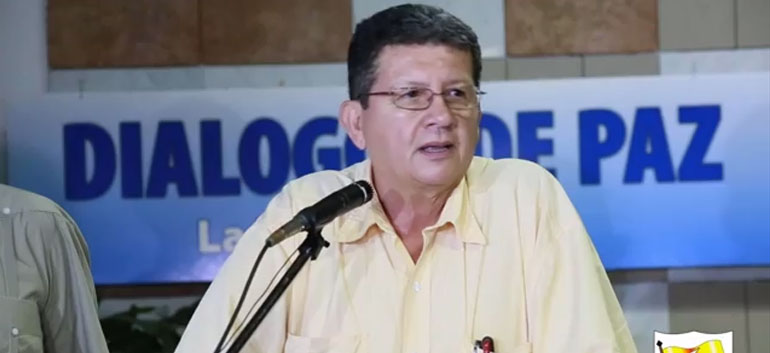Colombian rebel group FARC said Tuesday it will begin studying the transition of military power to Colombia’s National Army in rebel-controlled territories in the event of a deal with the government to end 50 years of conflict.
FARC negotiator and senior military commander “Pablo Catatumbo” made the announcement in Cuba where the guerrilla organization’s top commanders are negotiating peace with government representatives only one day after lowering expectations on the progress of the talks.
| “This ‘Normalization Command’ will study the way of making the military forces assume their constitutional role again, understood as ‘the defense of the national dignity and the borders’.” |
MORE: Colombia govt creating ‘false’ peace talks expectations: guerrilla group FARC
According to the FARC, the “Normalization Command will study the way of making the military forces assume their constitutional role again, understood as the defense of the national dignity and the borders. Moreover, this command should study how to dismantle the counterinsurgency battalions all over the country, since in a normal situation – of peace – in the country, there won’t be any need for them.”
Catatumbo rejected a government-formed “Strategic Transition Command” that is to oversee the demobilization of rebel fighters. The FARC commander claimed the state is seeking the “subordination of the guerrilla to the public force from this moment on, which is unacceptable for the insurgency.”
MORE: Colombia Announces 10 Member Sub-Committee To Discuss Bilateral Ceasefire With FARC
The 28th round of the peace talks have already seen a lot turmoil and been characterized by the FARC questioning if they are treated as an equal part in the negotiations and saying the government creates false expectations for the peace process.
The peace talks between the FARC and the Colombian government have been ongoing since November 2012. So far, both parties have come to agreements on agrarian land reform, political participation, and illicit drugs. The negotiators are currently discussing victims and the details of the disarmament and reintegration of Colombia’s oldest and longest-living rebel group.
Sources


